
Willis Palmer Sweatnam, Sr. (1854 - November 25, 1930) was a Broadway show actor and minstrel show performer. [1]

Willis Palmer Sweatnam, Sr. (1854 - November 25, 1930) was a Broadway show actor and minstrel show performer. [1]
He was born in Zanesville, Ohio, in 1854. He had a son, Willis Palmer Sweatnam, Jr. (1887-?)
When down on his luck in 1903, George Ade created a blackface role for Sweatnam in his new play The County Chairman , and Sweatnam proved to be one of the stars of the show. [2]
He died on November 25, 1930, at the Lambs Club. [3]
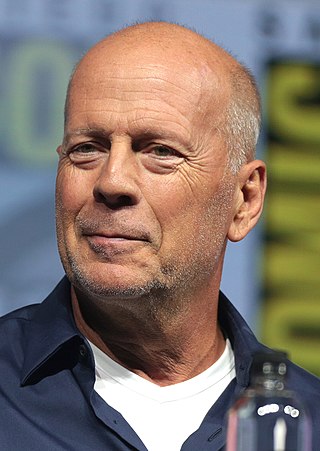
Walter Bruce Willis is a retired American actor. He achieved fame with a leading role on the comedy-drama series Moonlighting (1985–1989) and has appeared in over a hundred films, gaining recognition as an action hero for his portrayal of John McClane in the Die Hard franchise (1988–2013).

Franklin Edward Cover was an American actor best known for his role in The Jeffersons, Tom Willis, half of 1 of the first interracial marriages to be seen on prime-time television.

Edwin Pearce Christy was an American composer, singer, actor and stage producer. He is more commonly known as E. P. Christy, and was the founder of the blackface minstrel group Christy's Minstrels. He toured England performing.
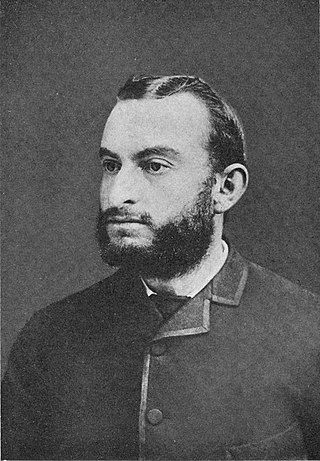
Gustave Frohman was a theatre producer and advance man. He was one of three Frohman brothers who entered show business and he worked for most of his career alongside his brother, Charles Frohman. These two financed a number of theatre productions, often featuring African American actors. For instance, in 1878, they starred Sam Lucas in the first serious stage production of Uncle Tom's Cabin with a black man in the lead role.

Fred Andrew Stone was an American actor. Stone began his career as a performer in circuses and minstrel shows, went on to act in vaudeville, and became a star on Broadway and in feature films, which earned him a star on the Hollywood Walk of Fame.
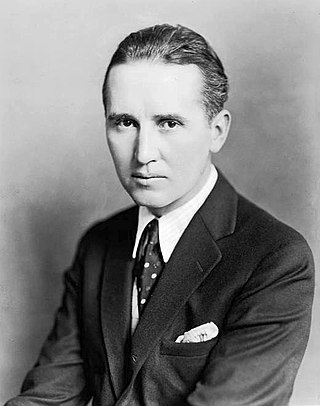
George Edward Kelly was an American playwright, screenwriter, director, and actor. He began his career in vaudeville as an actor and sketch writer. He became best known for his satiric comedies, including The Torch-Bearers (1922) and The Show-Off (1924). He won the Pulitzer Prize for Craig's Wife (1925).
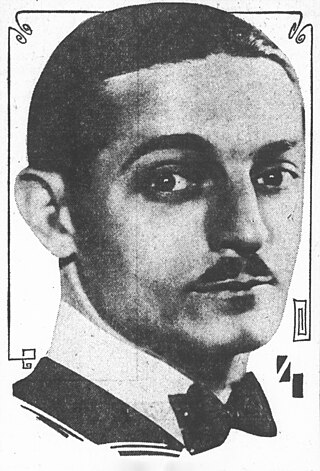
Lester M. Allen was an American actor, dancer, singer, comedian, and circus performer. After beginning his career as a child acrobat with the Barnum and Bailey Circus, he became a performer in minstrel shows, burlesque, and vaudeville. He worked as primarily a dancer and acrobat in the Broadway musical revues George White's Scandals and Ziegfeld Follies in the 1910s and early 1920s; ultimately progressing to singing and comedic acting parts. He starred as a comic actor in several musical comedies on Broadway during the 1920s and the early 1930s. He transitioned into work as a film actor, appearing in more than 15 films released from 1941 to 1950. He was killed after being struck by a motor vehicle in 1949.
Donald Moffat was a British-American actor with a decades-long career in film and stage in the United States. He began his acting career on- and off-Broadway, which included appearances in The Wild Duck and Right You Are If You Think You Are, earning Tony Award nominations for both, as well as Painting Churches, for which he received an Obie Award. Moffat also appeared in several feature films, including The Thing (1982), The Right Stuff (1983) and, in a rare leading role on film, as a tenuously-recovering alcoholic in On the Nickel (1980). Moffat also made guest appearances in numerous television series, including such shows as Little House on the Prairie, Dr. Quinn, Medicine Woman, and The West Wing. He also was a principal in the 1993 TV miniseries Tales of the City.

Francis Wilson was an American actor and founding president of the Actors' Equity Association.

William Courtright was an American film actor.

Three New York City playhouses named Wallack's Theatre played an important part in the history of American theater as the successive homes of the stock company managed by actors James W. Wallack and his son, Lester Wallack. During its 35-year lifetime, from 1852 to 1887, that company developed and held a reputation as the best theater company in the country.

George Walker was an American vaudevillian, actor, and producer. In 1893, in San Francisco, Walker at the age of 20 met Bert Williams, who was a year younger. The two young men became performing partners. Walker and Williams appeared in The Gold Bug (1895), Clorindy (1898), The Policy Player (1899), Sons of Ham (1900), In Dahomey (1903), Abyssinia (1906), and Bandanna Land (1907). Walker married dancer Ada Overton, who later also was a choreographer.

George Michael Cohan was an American entertainer, playwright, composer, lyricist, actor, singer, dancer and theatrical producer.
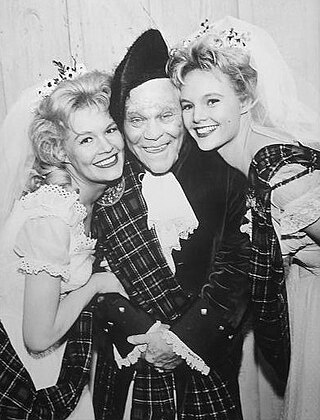
James Edward Barton was an American vaudevillian, stage performer, and a character actor in films and television.
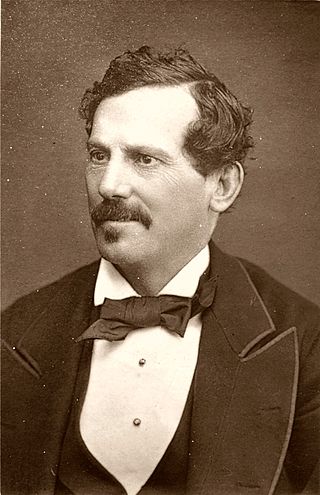
George Washington "Pony" Moore was a New York-born British music hall impresario.

Joseph Bridger Cawthorn was an American stage and film comic actor.

The County Chairman is a lost 1914 silent film drama directed by Allan Dwan, produced by the Famous Players Film Company and distributed through Paramount Pictures. It is based on the 1903 stage play by George Ade that starred Maclyn Arbuckle, who reprises his role in this film. Also starring alongside Arbuckle is up-and-coming heartthrob Harold Lockwood. The story is typical of the stage plays Adolph Zukor brought to films for his Famous Players Company in its earliest years. This film was remade by Fox in 1935 with Will Rogers.

The County Chairman is a 1903 comedy play by George Ade, which was one of his greatest successes. Produced by Henry W. Savage, it played for 222 performances on Broadway at Wallack's Theatre. It was also adapted to film in 1914 and 1935.
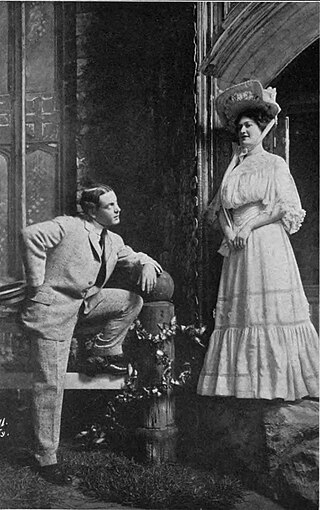
The College Widow is a 1904 American comedic play by George Ade, which was adapted to film multiple times, and also into the popular 1917 musical Leave It to Jane.

The Earl Carroll Vanities was a Broadway revue presented by Earl Carroll in the 1920s and early 1930s. Carroll and his show were sometimes controversial.